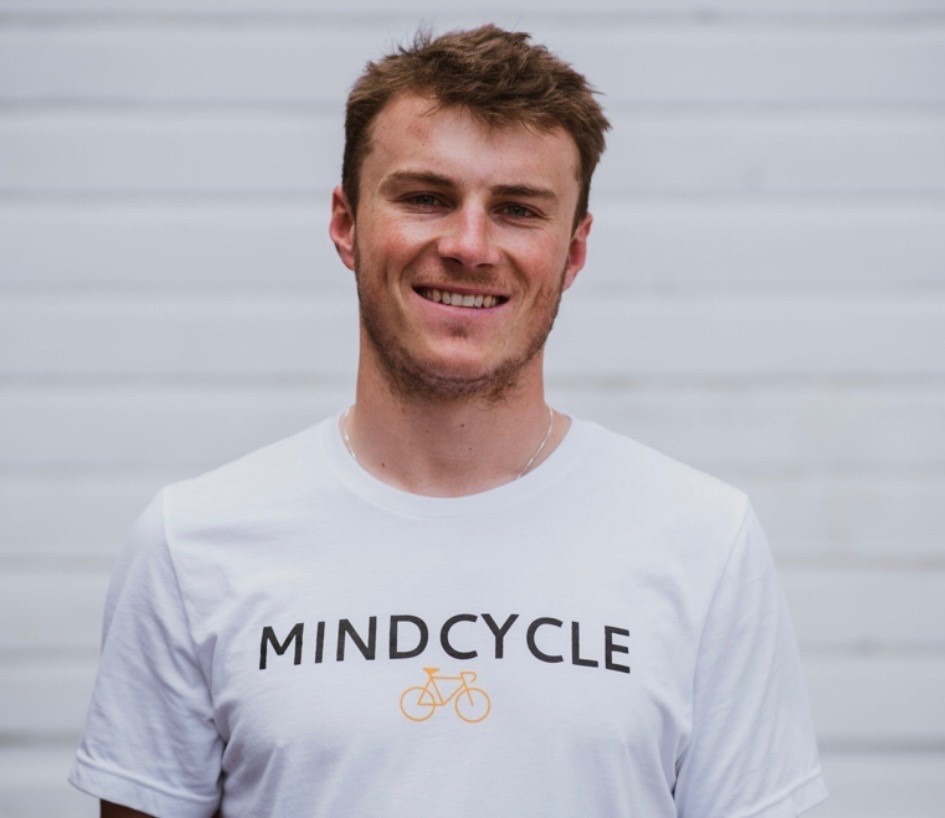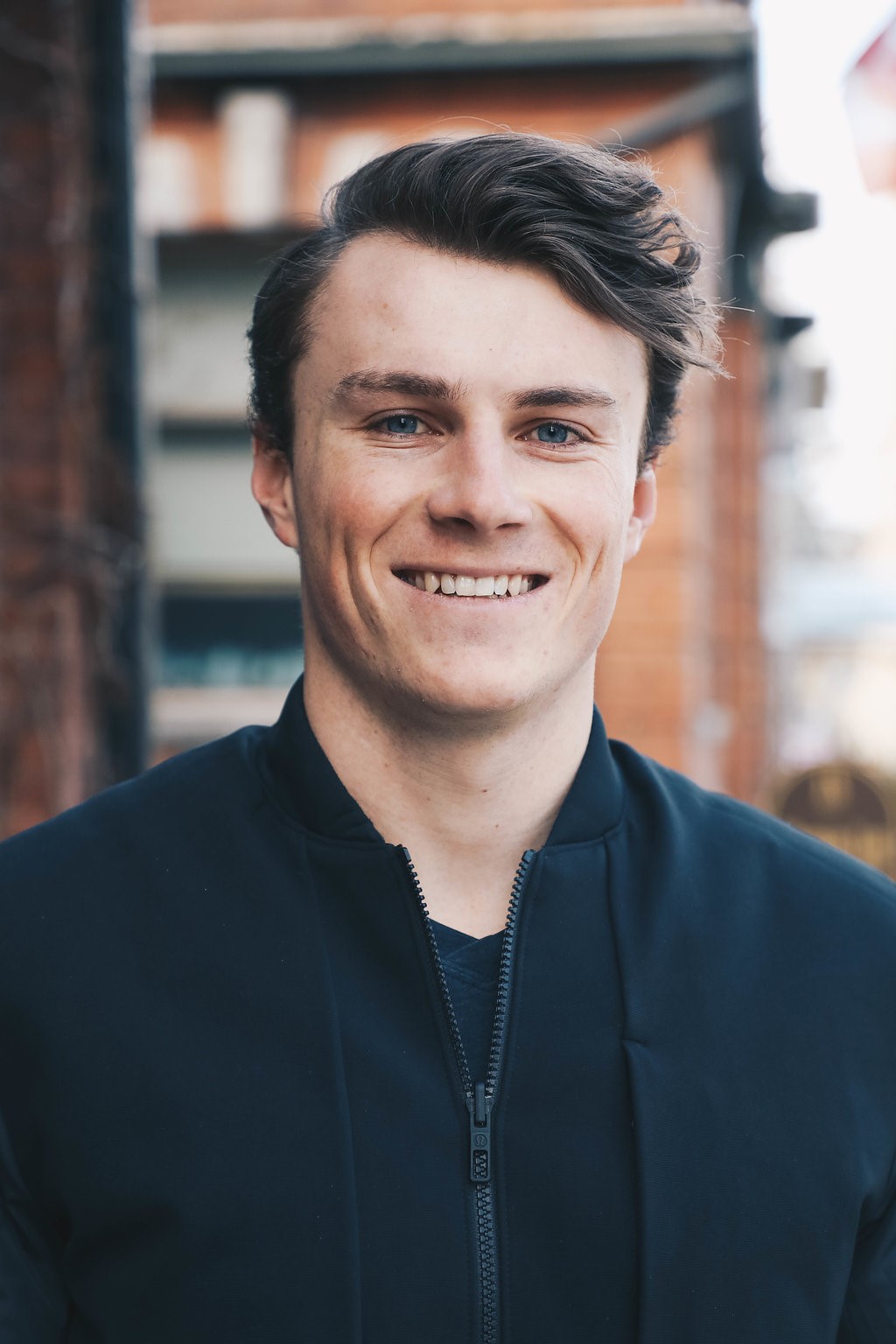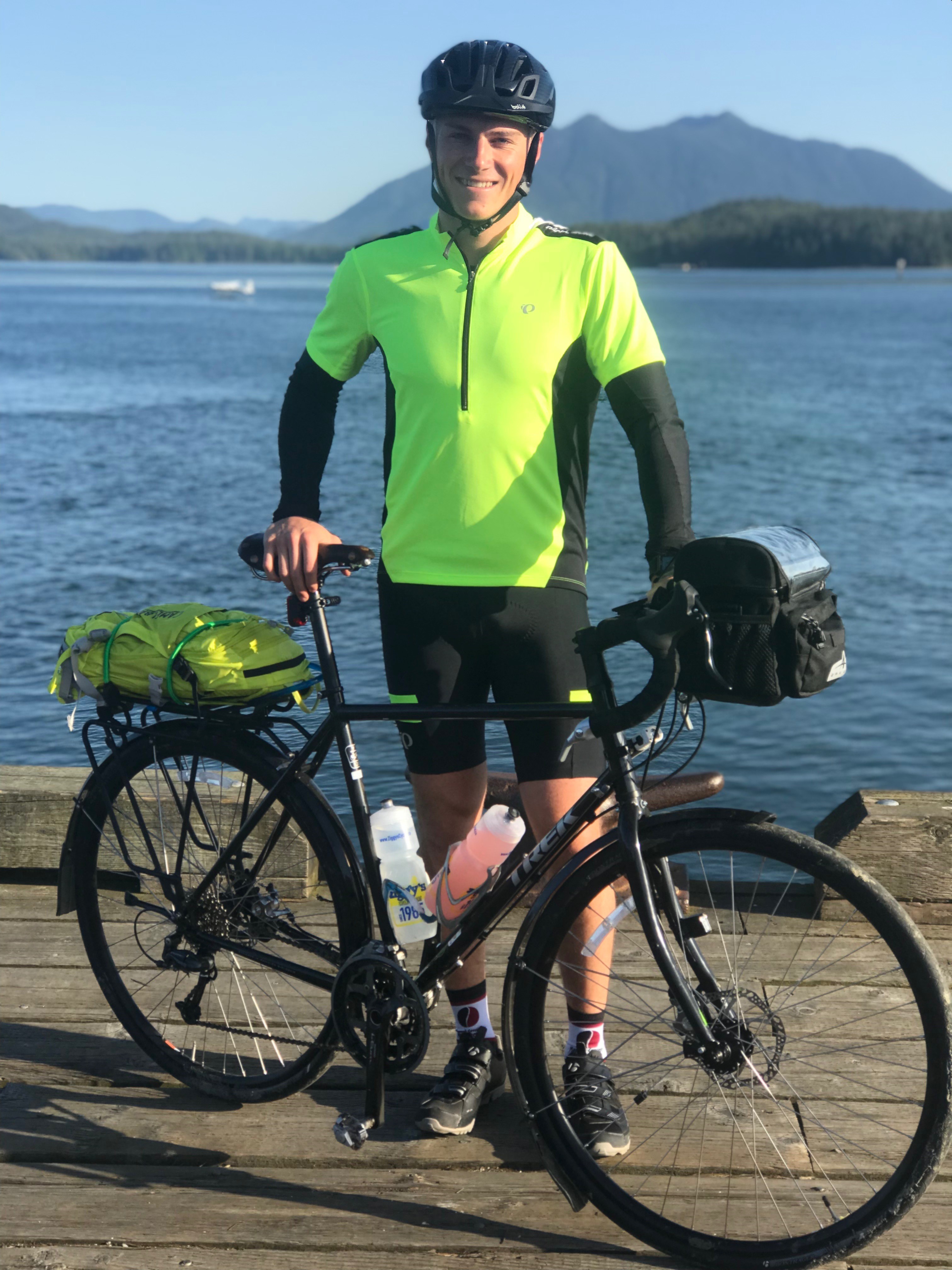
Ryan Martin: How to Become the Champion of Your Mental Health

This is Ryan's Story
My name is Ryan Martin, I'm 23 years old, born and raised in Guelph, ON. I currently live in Toronto working for the Canadian Mental Health Association as the National Lead of Youth Advocacy. Mental health is my passion and it's my life. Every day, I manage the unpredictability of my bipolar type II disorder - a constant flux of anxiety, depression, and irritability. But, over time and after being pushed to my limits, I've learned a lot about how to proactively manage and not be a victim. Mental health is more than manageable, and you can live an extremely healthy life. It just takes the right tools, support, commitment, and openness.
I want to share my story to provide context, not for sympathy. I want the focus of this to be on how we can become the champions of our mental health. I’ll focus on what I’ve learned about my mental health management, and I want everyone reading this to hopefully benefit.
When I was in high school, I was a very normal teenager. Lots of sports, social life, some bad decisions, and a desire to get a post-secondary education. During these years, I was hit by several forms of anxiety – social anxiety, performance anxiety in sports, etc. I thought I was just insecure, and that I was the only one feeling this way. After getting over a period of bad decisions, I pulled my act together for grade 11 and 12. I was determined to study business at Wilfrid Laurier University and eventually achieved the grades to make that happen.

Once at university, I was living with my best friends, was accepted into the ever-competitive co-op program and generally smooth sailing in my courses. But then, I started experiencing these couple-day periods of low-moods, characterized by the relentless shame of the past, pessimistic outlook on the future, abnormally low confidence, etc. I would be so “in my head”, feeling mentally foggy. I couldn’t keep up in conversations because all my mental attention was in my head. Because I couldn’t keep up socially, I became even more socially anxious – a vicious loop that increased the dark feelings inside. This happened in and out for the first two years of university, but there were also many great times in between. I was getting great jobs for my co-op placements, lived in downtown Toronto twice, met great friends at school and had a strong relationship with my family and friends. But the mood swings persisted, no matter how good things were on the outside. It was hard for me because I knew everyone was probably thinking how good I was doing, given my external circumstances. Eventually, I became so frustrated by the mental instability that I booked an appointment with the on-campus social worker. This would be the first person I’d open up to. I remember walking to her office literally shaking with nervousness and doubt that this was a good idea. I pushed those thoughts aside and spent the next hour telling her everything. It was wild and totally liberating. I talked the entire time, literally only about how I've been feeling – it was the definition of verbal vomiting. I walked out of there feeling like a million bucks – could pick up the phone and call anyone without anxiety, talk to any girl, put my hand up in a large lecture, etc. It was amazing, I’ll never forget that mental clarity and lightness. Slowly, the judgmental, negative, shameful thoughts came back, and two weeks later I was right back at square one. This was beyond disappointing and terrifying because I thought I had it figured out. I quickly booked another session with the social worker. Walked out feeling like a million bucks, bad thoughts and moods returned, and back to square one. I can’t emphasize how terrifying this was because I felt like I was going to be helplessly consumed by these awful mental states forever.
After being disappointed by the social worker sessions, I was determined to solve my problems on my own. I asked myself: what am I struggling with? My first answer was social anxiety, so I registered for a social anxiety course online. It was eye-opening, as I related to so many of the struggles they mentioned. One of the strategies they taught was called ‘Slow Talk”. Talking slowly in social situations forces you to slow down, be more rational, and slows the blood flow to your brain. This tool was revolutionary – I felt like a smooth and confident talker immediately. And then a few days later, when I shifted into a depression, I was confident in my abilities to feel better by talking slowly. Anyone that has depression knows that things move slow enough when you're depressed – so it's safe to say slow talk was useless. When slow talk didn’t make me feel better, I panicked, thinking “I thought this was IT”. Again, I became scared for my ability to manage in the future and felt extremely hopeless. I then focused my attention on solving my depression, since social anxiety clearly wasn’t the core problem. I learned that watching a funny TV show made me feel better when I was depressed. So, I thought that I just needed to watch a funny TV show whenever I wasn’t feeling well. This wasn’t the case because when I became anxious or irritable, I would want to rip the TV off the wall while watching the show. So, more tools learned and more disappointment. I was so focused on finding the one "solution" to my problems. Over the course of the next two years, I learned countless other tools, I tried anti-depressants, I started talking about my struggles with my family, I meditated, I exercised, I ate healthily, I read books, I got symbolic tattoos – the list is endless. And every time I found a new "strategy" it would work great for a short period, and then I'd be back at square one. I would feel so optimistic and then it would be stripped away from me when the strategy would stop working. I kept pushing even though I was experiencing extreme lows and anxiety, holding onto the hope of getting this all figured out. Suicide would come up in my mind quite frequently, but a sliver of hope and my love for my family and friends prevented me from taking action.
Throughout these two years, I was maintaining good grades at school, a relationship with my girlfriend at the time, my friendships, social events, jobs, and six-month exchange in Denmark. I want to emphasize that every day was not bad, but the cycling moods always returned.
I landed a job in business development at a software company the month after I graduated. It was a perfect situation – solid job, living at home (no rent), at a cool, growing company. I really liked my job, as it challenged me, my colleagues were great, my boss was a strong leader, and I was warmly embraced by the company. Unfortunately, this didn't stop any of my mental challenges. It was a tough time for me, as I'd spent the past four years working so hard at my mental health, wanting to be stable for when I entered the real world – and then I wasn’t. I was terrified of my future in the working world – Can I maintain this job? What if they find out I’m struggling? What if I get fired? The mental struggles continued, until, I hit my breaking point.

Two months into the job, I was driving home from a weekend at my cottage with two of my best friends. We’d been up late the night before, which makes my mental state even less stable. At one point we got chatting about some deep stuff and I started feeling this ball of pressure in my throat. I felt like my head was going to explode. All of a sudden I started crying uncontrollably – my friends had no idea what was going on. I could barely speak, until I finally mumbled: "I can't do this anymore, I can't do this anymore on my own". We pulled over and I just broke down in front of them, telling them everything I’d been dealing with - the pain, the fear, then shame. They were completely shocked by what I was saying but were incredibly supportive. I cried the next 30-minutes to get home, where we were greeted by my family. I sat everyone down and gave them the full story; everyone was crying. We spent the whole night chatting and by the end, I felt relieved. I woke up the next morning for work feeling pretty good, but a little shaky. The morning went fine, but in the afternoon, something switched, and I became plagued by intense, terrifying thoughts. I stepped out of the office and texted my parents saying, “I’m scared” - I was scared of what I could do. They rushed to my office, picked me up, and we went straight to the ER. I was admitted immediately and was given a full consultation – aka had to tell my story to a bunch of strangers. They diagnosed me with Generalized Anxiety Disorder and prescribed me anti-depressants. I walk out of the hospital feeling confident I was on the right track. I wanted people to know about my struggles and what I'm doing about them now. On the way home, I texted my close friends a message that summarized everything – my past and what’s to come (ie. Medication, therapy, etc.). They were incredible and totally blown away. It felt so good to expose myself and receive so much love, so the next morning I texted that same message to all my family, then to my other friends, my sister’s friends, and my parent’s friends. The responses I was receiving were incredible and made me feel so good. I wanted to keep exposing myself, so I told my colleagues at work, then my boss, and then the founders. Not one person responded with judgment, it was pure support and compassion. My mind was blown, I couldn't believe that everyone knew about my struggles. I was on cloud nine the rest of the week feeling optimistic about the future and my mental health. I believed that this was "it", all I needed to do was fully open up and my struggles would go away. But then… the next week the thoughts came back, and I was, you guessed it, back at square one. I was incredibly frustrated and confused.
Fortunately, I had booked an appointment with a psychiatrist, six months before, that was quickly approaching. During the appointment, the doctor did a full evaluation and concluded that I had a form of bipolar, called bipolar type II. It means my brain doesn’t have the ability to moderate my moods. He said this explains my constant fluctuation between depression, anxiety, and irritability. The word ‘bipolar’ made my stomach flip, but I tried to accept his diagnosis and committed to the mood disorder medication plan he created. For anyone that doesn’t know, mood disorder medications are known for their side-effects. I was hit hardest by mental fogginess, memory loss, worsened anxiety and depression, and reduced cognitive ability. Over the next year, I tried countless medications, combinations, and dosages. Every time I made an adjustment, I would feel great for a few days, and then it would all come back. So, I’d think, “Oh, perfect, so I just need to go up in dosage and the ‘great’ feeling will last.” Then it wouldn’t, and then we’d switch to a new medication to go through the same process.
After a year, I was on three medications and felt OK with where I was – but definitely not ideal. At this point, I hadn't told anyone except my family about my bipolar disorder and it was eating away at me. I had been working for over a year, saved a lot of money, and was hoping to cycle across Canada for the summer. But, I wanted to make this ride bigger than just me. I decided that I was going to use it as an opportunity to fully expose myself, bipolar and all. I wanted to share my story so that people struggling out there could feel less alone and not give up. As much as I was struggling, I knew that people dealing with a mental illness could still live a good life. I knew this was true because despite my challenges, I was excelling at my job, had a new girlfriend, maintained relationships, and was physically healthy. Even though I didn’t have the answer, I knew that we could learn to effectively manage our mental health – I knew there was hope.
So, not too long after, I quit my job and began planning for my ride. I created a website and got some media coverage. Once the first article was published, I posted it on Facebook, and it blew up. People couldn’t believe what I was doing and how I was so transparent with my struggles. There wasn’t a single ounce of judgment, criticism or negativity. I was so pumped up, and my fundraising (for CMHA) quickly skyrocketed. At this point, I wasn't naïve to think my struggles would disappear after opening up, getting media attention, or fundraising a bunch of money. I knew this ride was going to be full of mental ups and down, and it was going to be my responsibility to navigate them. But now that I’d opened up, I had all of my family and friends behind me.
I hit the road in Tofino, BC on May 14th, 2018. I won’t go into the fine details of the ride as I'd need a lot more space to write. But, I want to focus on the mental side of the ride. Within the first two weeks, I hit rock bottom, in an extremely low spot. I was crying on the phone with my mom as she eventually calmed me down from a scary state. I bounced back and hit the road the next day, only to get hit again by a breakdown two weeks later.
The day-to-day was probably the hardest part of the ride because I had so much time to think, my moods could change on a dime. It was a constant mix of the classic (for me) anxiety, irritability, and depression. I could go through twenty different states in a day. Add in loneliness, people cutting you off, and wind, and it makes things even messier.
Even though it was tough mentally, I had way too much motivation to give up. I was doing this for myself, I was doing this for people that are struggling, for families that are struggling, and to educate the public. There was just too much on the line for me – if someone that was struggling didn’t hear my story, then they might be doing something stupid. I wanted to make sure no one felt alone.
Over the rest of the four-month trip, I think I experienced every single mood possible, to every single severity. I was pushed to my mental limits on several occasions. But, because of all these experiences and time with my thoughts, I learned so much about my mental health. Here’s a breakdown of what I want people to know.
"You don’t solve your mental health issues. You become the master at managing them. Solving is unrealistic."
I spent so many years fixated on solving them. On this trip, I learned that stopping my moods from happening is impossible. I learned that they will always be changing, coming and going. It’s incredibly important to accept that your mental state will change because when it happens you aren’t surprised or disappointed. So now, when I'm feeling good, I anticipate the possibility of becoming anxious or depressed and prepare for it. And when I'm depressed, I know that it will pass eventually, so let's just be patient and ride it out. Just the ability to accept your moods and not fight them is incredibly empowering.

On the topic of becoming the master of managing your mental health, I learned an invaluable piece of information.
It’s not one coping mechanism, one medication, one therapy, one conversation, one workout out, one diet, one meditation session that ‘solves' your issues. Rather, it's a strategic combination of all those different tools that allow you to proactively manage.
In hindsight, this is obvious for me, but I spent all those years thinking each tool would solve my issues. I was constantly disappointed that a tool would work for one mental state and not the other. And because it wouldn’t work, I’d give up on it. After having to deal with so many ups and downs on my ride, I eventually learned that it’s about the toolbox and not the tool.
You need to build a toolbox of as many strategies as possible to manage your mental health. Now, I have a tool for anxiety, tools for depression, and tools for irritability. I know that each tool has a specific use for a specific mood and that it alone won't make me feel better. For example, when I'm depressed I have the following tools at disposal: talking about how I'm feeling, journaling my thoughts, funny TV show, get hydrated, comfort food, reminding myself that it will pass and I’ll be OK, going for a walk, avoid socializing, do less intensive tasks at work, etc. When I’m anxious, I talk about how I'm feeling, exercise, talk slowly, meditate, practice slow breathing, put ice on my neck, etc. Over time, you get a better sense of when to use each tool, which ultimately helps you bounce back faster. Never stop learning and testing new tools, because the bigger the toolbox the more options you have to manage your moods.
Being aware of your moods is also important. It's so easy to get caught up in how we're feeling and fall down the rabbit hole. If you can be hyper-aware of your moods, you can identify what mood you're in, and then whip out the tools that will help you manage. When I fall into a depression it can take up to a day to realize it. As a result, I begin to get caught up in the thoughts of shame, pessimism and, often, giving up. But, by being hyper-aware, you can see that these thoughts are just the cues that you’re in a depression, and nothing more. That really strips the thoughts of their power. Okay, great, now that I know I'm in a depression, what tools can I use? I'll start off by telling someone I'm not feeling so hot, then I'll throw on a funny show, then I journal about how I'm feeling, then I'll take my dog for a walk, then I might cancel plans for a social event. It's the same process for all your other mental states. My ability to be aware of my moods was strengthened by my practice of mindfulness and meditation. They helped me to be aware and identify how I’m feeling in a given moment, which then helps me know what tools I need to use. It’s all about the tools.
Being aware has allowed me to manage my scariest moments, especially on my ride. One time I had in Quebec was biking after a few nights of bad sleep, which pushed me into a depression. But, while I was riding I also started getting uncontrollably irritable – a scary combination. I was sliding into a dark place quickly and before I knew I was shouting “I want to die, I want to die, I want to die”. It was terrifying. But then I remembered my motto to "be aware". As soon as I remembered this, I took a second to acknowledge the mood I was in and the severity of it. This effort brought me out of my head for a split second, which allowed me to think of a tool to use – slow breathing. I tried my best to solely focus on long breaths, in and out. After about 10 seconds, my mind would wander back to the suicidal thoughts, and then I'd remember to be aware. Once I was aware I'd remember to focus back on my breathing. This cycle happened for the next hour until I reached the motel I was staying at. I arrived safely and was able to calm down. This is a perfect example of how being aware of your moods can save you from a mental state. It’s not just used for suicidal situations, but also for general mood management. When you’re feeling anxious, try to remember to be aware, acknowledge how you’re feeling and then use a tool. And rinse and repeat until you start to calm down.
I also learned of the importance to break your mental health into a science. Understanding the triggers, cues, and tools for all your moods is super powerful. Take anxiety for example. What are the triggers that cause my anxiety? Stress, lack of sleep, too much change at once, too much unpredictability, unpreparedness. So, now that I know my main triggers I can do my best to prevent them, or if they are going to happen, I can prepare myself to become anxious. What are my cues and signs that I’m anxious? Racing thoughts, irrational thinking, fast heartbeat, high energy, etc. So now that I know my main cues, I can know when I’m in an anxious state. Important to note that I must be ‘aware’ of how I’m feeling to recognize the cues. And, finally, what are the tools I can use when I’m anxious? Slow breathing, meditation, telling someone how I’m feeling, exercise, hydration, ice on my neck, etc. So, now I can use these tools to help manage the anxiety. I don’t expect the tools to make the anxiety disappear, but I know that if I use enough of them, I will be able to better manage.
I appreciate how messy and confusing mental health struggles can feel, but if you relentlessly try to understand your mental health and find the tools to help, you can effectively manage. Anticipate and accept those undesirable moods will happen, and when they do happen, and you make it through, try to learn from them so you can be more prepared next time. Proactive is the word that comes to mind when I think of effective mental health management.
Be authentic and open up to one person in your life, then another, then another. If you’re authentic and honest, people are more likely to help you. People in your life are also a part of your toolbox, but one person won’t solve all of your issues. Each person has a specific purpose in your struggles. For example, your mom may be the person you call when you're at your worst, your friend may be the person to talk to after you've made it through an episode, and your boss may be the person you give high-level updates to.
Try to set yourself up for success. Does a bad sleep affect your mood? Then make sleep a priority. Does exercise clear your mind? Then make exercise a priority. You get the point. Try therapy, try medication (if you want), try mindfulness, try meditation, try a new diet, read books – never stop exploring new tools. It will take time, but I can guarantee you’ll look back after a year and see how much progress you’ve made. It’s not progress to solving your issues, but progress to becoming more confident at managing them. That's where I'm at – my moods are always changing, but now I'm not scared of them and I'm more confident in how to manage them. I've made it through so many ups and down in different situations (i.e. during job interviews, public speaking, social events, dates, hanging out with friends, at work, etc.) that I don’t even panic when my mood slips, because I know I will be ‘good enough' with anything I need to do. It's this confidence that has really changed my life.
My final advice to people out there is this:
- Acknowledge how you’re feeling, accept that it’s happening, and then own it. You won’t make any sustainable progress without doing this.
- Commit yourself to building your toolbox of different strategies to help you manage your mental health. Never stop learning and trying new tools.
- If you’re struggling on your own, I dare you to pick one person in your life to authentically and fully open up to. I can almost guarantee that it will make a huge change in your life.
I don’t see my ups and downs as struggles anymore, I see them as mental swings that are my responsibility to be aware of and manage. I have owned my mental health and as a result, I don't feel like a victim anymore.
I hope this helps people feel less alone and inspires you to keep working at your mental health. It’s absolutely manageable and you can live an incredibly healthy and fulfilling life – I know because I’m doing it.
- Ryan

Don't see what you're looking for? Send us an email!
©Copyright 2024 Cam’s Kids powered by Kids Help Phone
Not-for-Profit Organization. B/N: 921508-5
Thanks for visiting Cam's Kids. Please remember...
Cam's Kids is not a service provider.
If you are in crisis, please call 911 or go to your nearest emergency department. For free, confidential counselling, contact Good2Talk or Kids Help Phone.
Post-secondary students: find your local crisis resource here.





